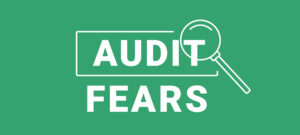So, many of us have just sent our kids back to school, college, university, or trade school. Please take a moment to exhale and smell the roses. Done? Ok good. Now, before you shift back into worrying about them again, remember that every parent worries about their children but preparation and education can forearm them and slightly alleviate your anxiety. No topic is a better example than that of finance, and it’s never too early or too late to start, especially if your kids are moving away for school.
1. Strength in Saving
Saving money is a great habit to instill in your kids, and the younger, the better. For pre-teens and younger, the age-old piggy bank is typically where saving begins, but we suggest a jar or clear container so the growth of your child’s nest egg is visible and notable. Make a game of saving by setting goals and offering reward incentives such as gifts or matching amounts.
2. Earning is Learning
There is nothing more formative than a pre-adult job. Whether delivering newspapers, bussing tables, or babysitting, earning is learning and an excellent way to help teach financial basics. Having your child earn their allowance via chores or academics is a great alternative for kids unable to work outside of the home. Also, a savings account at a bank is a great teacher of interest rates and introduction to the banking institution.
3. Begin Budgeting
Teaching budget basics is essential, and middle school age is a perfect time. Middle schoolers typically have the mathematical and conceptual ability to do basic budgeting. You don’t want to overwhelm or create anxiety for your pre-teen but providing an understanding of how to put money aside for future needs is a keystone for financial success down the road. Here are some helpful tips. Does your child earn an allowance? Show them how to put a minimum of 10% aside either in a personal bank or in an actual account at a banking institution. Do they have generous grandparents? Have your child tuck away a portion of that gift money now. Does your child have an eye on a big purchase? Have them help you pay for it. Let your children know that having money is saving money, and banking it makes it grow.
4. The Dangers of Credit Cards
Of all the points touched on in this post, this might be the best for your children to learn, especially those living remotely while pursuing further education or training. Credit, specifically credit cards, are a tool that can easily become a crutch and eventually cripple you financially. Luckily, the CARD Act of 2009 (Credit Card Accountability, Responsibility and Disclosure Act) requires consumers under 21 to have a cosigner or steady income to obtain a credit card. Now, while this act limits options for 18-year-olds to obtain credit cards, there are still issuers and cards available for them to experience and learn about credit while building their credit score.
It is important to reinforce the fact that credit is not free money. Studies show that consumers spend more when paying for a purchase with a credit card. It’s as if not having to hand over physical currency makes it easier to spend. Be sure to discuss in detail the pitfalls of easy credit card spending, percentage rates, and the mistake of paying the minimum balance. The best strategy is to help your young adult establish parameters and limits for using their credit card, such as defined emergencies like car trouble, unforeseen school costs, or life needs.
5. Make your experience, their benefit
Relationships between parents and their children vary, but if you have an open and transparent relationship with your kids, this piece of advice will be helpful. Within limits, share your financial experiences with your child. Sharing mortgage details might be too overwhelming, and a source of anxiety, but car loans and payments are a great example. Take them through everything from the duration of the loan, the interest rate, the payment cycle, and the payoff process. Seeing and understanding financial responsibility in the wild will make an impact that can aid in their future financial dealings.
In this digital age, young people rarely see money change hands, so it’s important that the above topics are discussed frequently and with ease. Your teaching and experience can get your kids started on the right foot financially.



